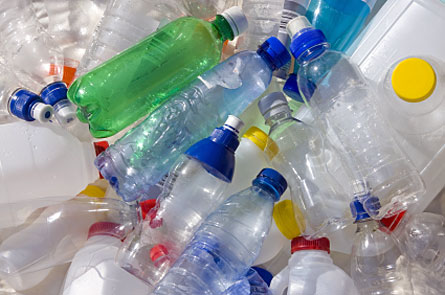Plastic-munching microbes
Microbes may soon help make it easier to recycle your soda bottle, helping to create new demand for what has historically been a low-quality recycled material.
After guzzling down a pint of water, soda or a sports drink, most people toss the empty bottle in the recycle bin without a second thought. After all, if it’s getting recycled, something useful will come from it again, right?
Not necessarily. The type of plastic most bottles are made of — called PET, or polyethylene terephthalate — is usually recycled into only a low-quality plastic that can’t be reused to package food or beverages. In other words, the soda bottle you recycle today isn’t going to become another soda bottle any time soon.

Heating PET plastic produces three breakdown products — a solid called terephthalic acid, or TA, as well as a liquid and a gas. The research team knew that some strains of bacteria feed on TA, and that other strains of bacteria can produce the biodegradable plastic PHA. But nobody had ever seen a strain of bacteria that fed on TA and produced PHA. Could such a strain exist?
To find out, the scientists studied soil collected near a plastic bottle factory in Ireland.They found bacteria living on particles of PET in soil that had likely been contaminated by TA during the bottle-making process. And in the lab, they found what they had looked for — strains of bacteria that both break down TA and produce PHA.
Harnessing this bacteria’s ability to convert TA to PHA could be an important next step in recycling PET, says Kevin O’Connor, the microbiologist who led the research. The ability to convert discarded products made of PET into another useful material, a process called “upcycling,” would create new demand for what has historically been a low-quality recycled material. “While PET to PHA is not the sole answer to PET recycling, it can be part of the solution,” he says.







